
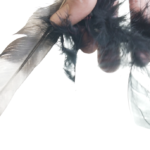

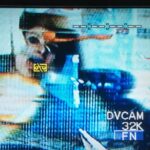
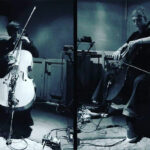


IBIZA MOVE
A non-authorised disassembly of grooves in consolidation.
IBIZA MOVE are Dj Junktion x Munsha
Soon UPDATES, Music and more about the project!

PIAFFE // *Thriller, 86 minutes, color
German cinema release on May 4th 2023 // Premiere Concorso Internazionale Locarno 2022 – Distribution Salzgeber–Sales Rediance
Awards Junior Jury Award Locarno / Best Feature Calgary / Silver Hugo Chicago / Best Film Junior Jury Márgenes Madrid / Spirit of the Festival Award Cork / Prix du Jury Gerardmer / Best Production and Best Director Achtung Berlin.
With Simone Bucio, Sebastain Rudolph, Catheurine Mayer, Lea Draeger, Hannah Müller, Simon(e) Jaikiriuma Paetau. * Writer & director Ann Oren / Scenography: Ilaria Di Carlo / Costume: Anna Philippa Müller / Light design: Francisco MeCe / Hair and makeup designer: Sada Leigh Sherrin / Key Makeup artist: Basil Prinz / Music: Munsha, äbvsd, VTSS / Sounddesign: Danylo Okulov / Production: Kristof Gerega, Sophie Ahrens, Fabian Altenried.
All screening dates here // PIAFFE on IMBb / Instagram. Watch the Trailer
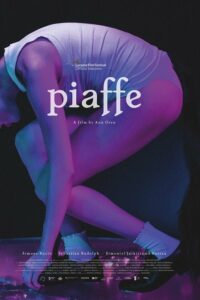
A Song that Can’t Be Sung [Theatre]
Premiere: 24. March 2023 // Further shows: 25.- 26 March 2023
Schaubühne Lindenfels (Leipzig)
Four women meet in a space, to commemorate, to resist, to bear witness.
To each her own voice, language, fate.
When trauma is unsayable, when words are unbearable, how can we possibly become a community?
How can we listen?
A piece for flutes, cello, movement, and four voices based on the stories of Cassandra and Iphigenia.
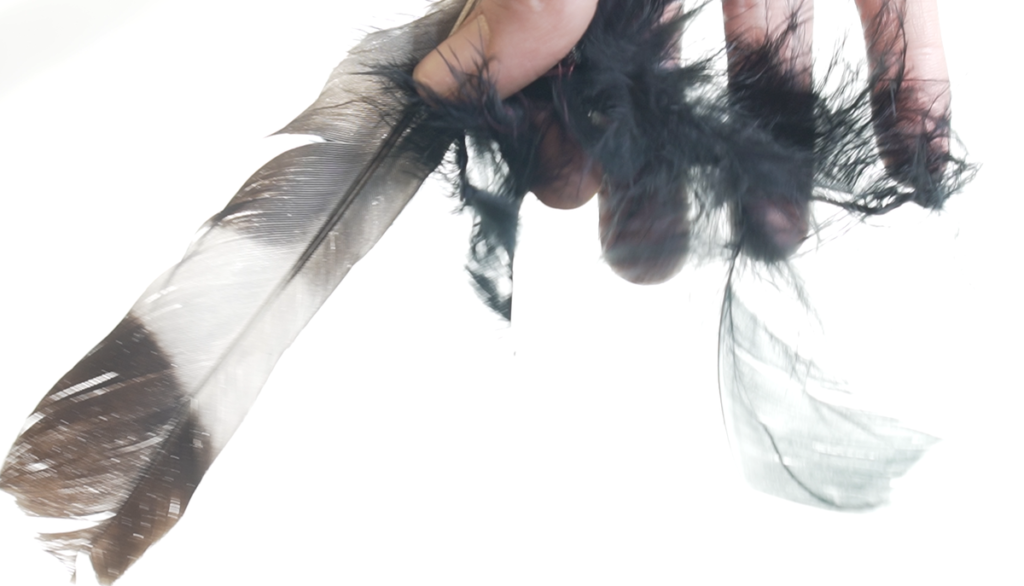
One room, four people.
Each has their own voice, language, their own destiny. They commemorate, resist, bear witness.
“A Song that Can’t Be Sung” is a play about grief, about the compulsion to tell what cannot be put into words – about the constant presence of traumatic memories in our (sub)consciousness.
It poses the question of how we endure the unbearable, as individuals and as a community. The stories of two figures from ancient Greek mythology are interwoven. Cassandra and Iphigenia, both from Aeschylus’ “Agamemnon”.
One: prophetess of doom, lamenting her own suffering and that of humanity, trilling like a nightingale, “disturbed”. The other: an innocent girl, perfect and silent.
Both are survivors of patriarchal violence, two faces of the same fate.
The play creates a common ground between these two figures: through a musical-choreographic score for four voices, strings and flutes, through shadow play that transforms darkness into symbols, and through a new ancient text reconstructed from ancient Greek.
Ein Raum, vier Personen.
Jede hat ihre eigene Stimme, Sprache, ihr eigenes Schicksal. Sie gedenken, widerstehen, bezeugen.
„A Song that Can’t Be Sung“ ist ein Stück über Trauer, über den Zwang, zu erzählen, was nicht in Worte gefasst werden kann – über die ständige Präsenz traumatischer Erinnerungen in unserem (Unter-)Bewusstsein.
Es stellt die Frage, wie wir das Unerträgliche ertragen, als Individuen und als Gemeinschaft. Dabei werden die Geschichten zweier Figuren der antiken griechischen Mythologie verwoben. Kassandra und Iphigenie, beide stammen aus Aischylos’ „Agamemnon“. Die eine: Prophetin des Untergangs, die ihr eigenes Leid und das der Menschheit beklagt, dabei wie eine Nachtigall trillert, „gestört”. Die andere: ein unschuldiges Mädchen, perfekt und schweigsam.
Beide sind sie Überlebende patriarchaler Gewalt, zwei Gesichter desselben Schicksals.
Das Stück schafft eine Gemeinsamkeit zwischen diesen zwei Figuren: durch eine musikalisch-choreografische Partitur für vier Stimmen, Saiten und Flöten, durch Schattenspiel, das Dunkelheit in Symbole verwandelt, und durch einen neuen alten Text, rekonstruiert aus dem Altgriechischen.
Voice, Performance: Anna Clementi // Cello, Performance: Daniela Lunelli aka Munsha // Regie, Text, Performance: Abigail Akavia // Musik, Video, Performance: Hilà Lahav // Support stage and costume: Elisabeth Schiller-Witzmann.
A co-production with Schaubühne Lindenfels. Supported by the Fonds Darstellende Künste and by the Akademie der Künste with funds from the Federal Government Commissioner for Culture and the Media within the framework of NEUSTART KULTUR and by the Cultural Foundation of the Free State of Saxony. This measure is co-financed by tax funds on the basis of the budget passed by the Saxon State Parliament.
Alex DocDorsch x Munsha
An almost accidental combination on stage generates a collaboration as well as a friendship (THANKS Bob Rutman for that!!!) .
Two celli of different natures come together, get lost, and find each other in resonant, deep bowings to mediate in a mysterious, dynamic, spherical, almost magically beguiling impression.
An archaic modern, timeless trip into sound.
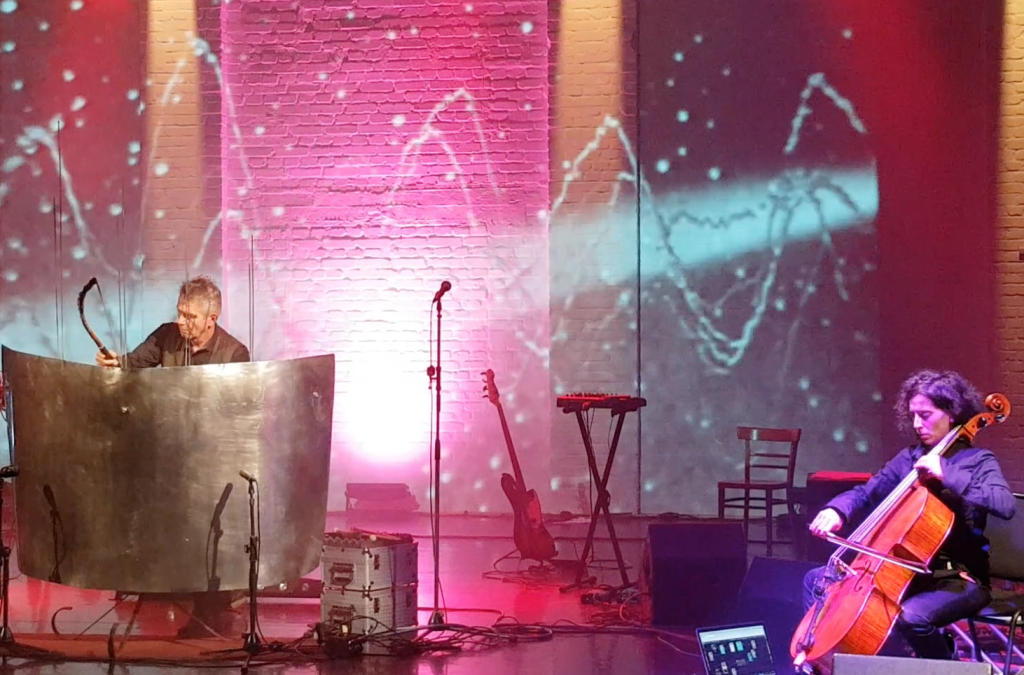
Mammalian Interface
Nico – drums // Munsha – cello, voice // Knifeloop – objects, analogue circuits // Dafne Narvaez Berlfein – artwork
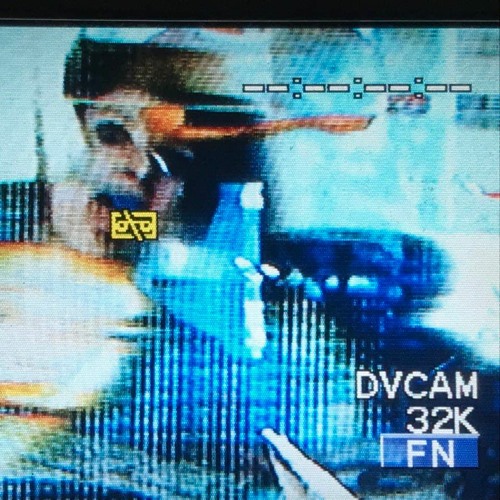
Soundscapes
Jochen Arbeit – guitar // Martina Bertoni – cello // Munsha – cello // Hopek Quirin – bass, cassettes
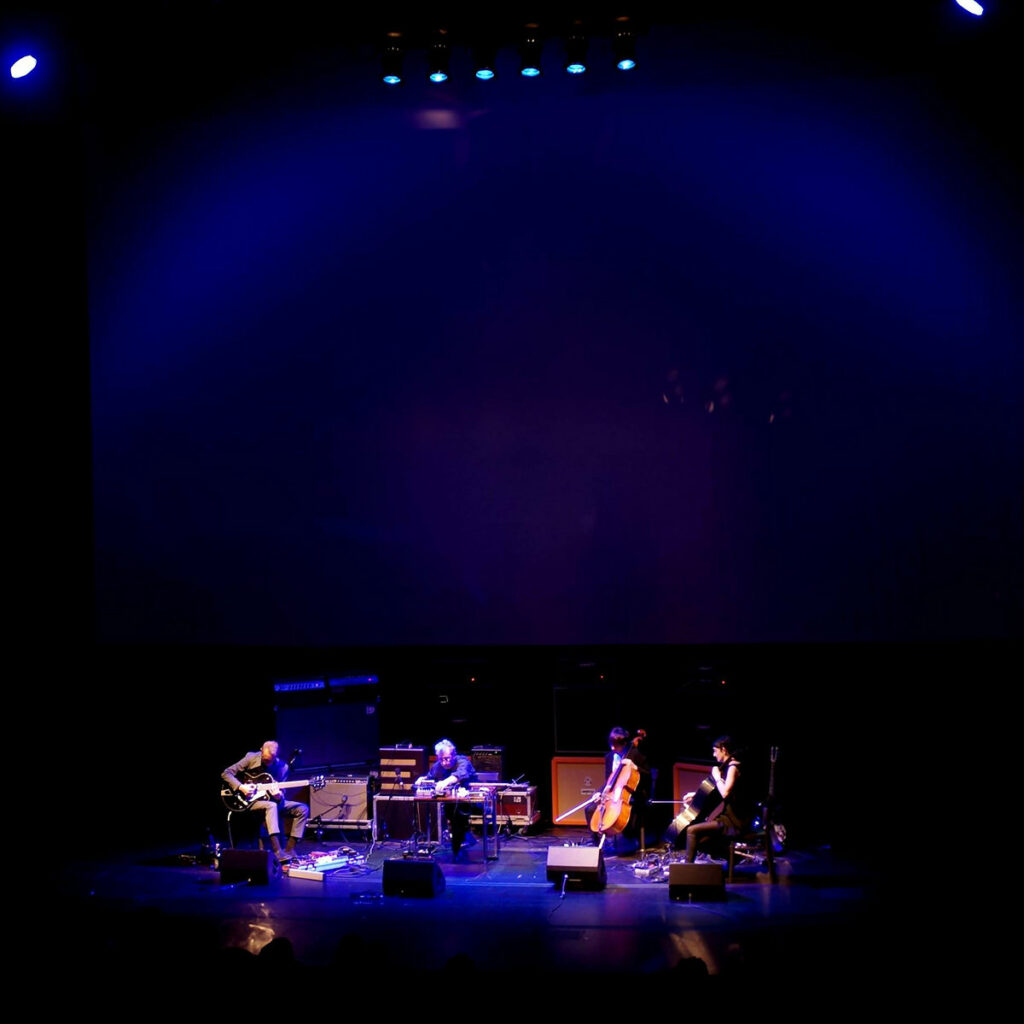
Martina Bertoni x Munsha
2 cellists stroke cello strings, broider dialogues without words, blend warm voices with feedback and produce strange sounds in strange ways.
Martina Bertoni and Munsha’s concert is an impulsive performance for unforeseeable cellos, elusive echoes and boundless fascination.
We are talking about a unique, sonic dialogue that the cellists MARTINA BERTONI & MUNSHA conduct live in their sound dialogue.
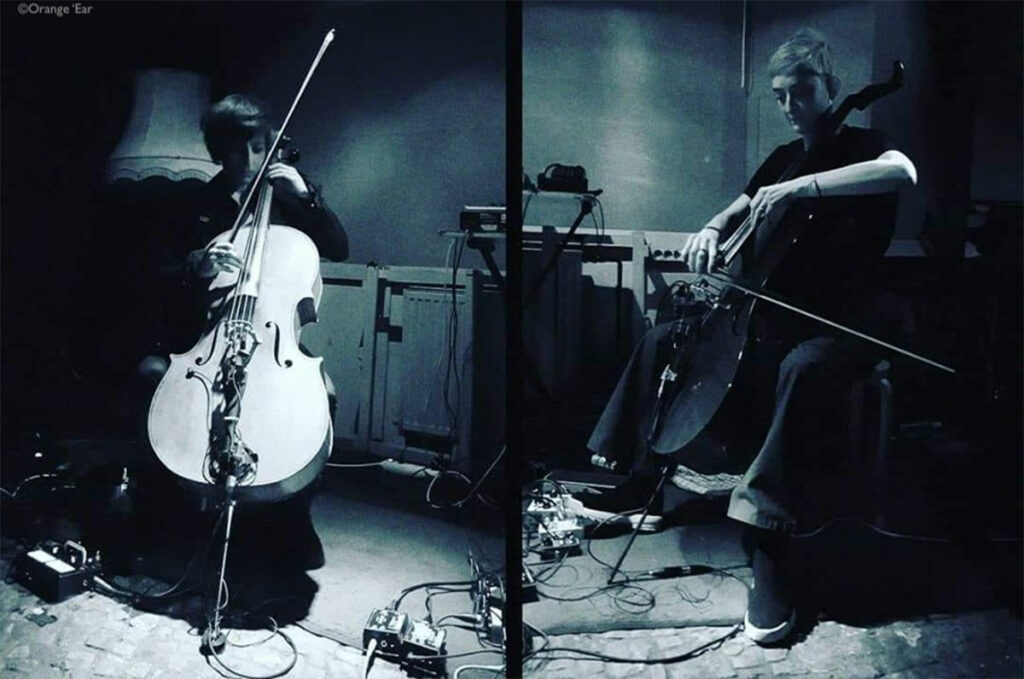
MARTINA BERTONI uncovers new paths on the cello through a multi-layered world of sound, ranging from a purely classical orientation across improvisation to experimental and electronic music. When her bow takes hold, a sound language expresses itself that enters completely into dialogue with the surrounding musical environment and exploits it to the full – in an interplay of gentleness and power that elicits all the instrument’s rich facets.
The musician, singer, sound designer and performer MUNSHA condenses the dialogue between individual and ever-changing sounds with captivating cello sounds and beguiling vocals. Rhythms of rock merge with unconventional harmonic structures; the sonic spectrum may merge into dark wave melodies and harmonic cadences culminate in electronics.
The sound language of the cellists tells of a complex sound in which all elements are on an equal footing, mutually enhancing and enriching each other: Rhythmic parts, melodies and harmonies. [V.F.]
Max Maffia & the Empty Daybox
Is it still possible in this technocratic age to rediscover your own roots? Do we still conserve something of our natural essence, or is all lost?
The group was formed in 2009 when Salerno guitarist Max Maffia, after an enlightening experience running his own independent record label, decided to set off in a new direction and produce a repertoire of original acoustic instrumental compositions together with a small group of talented musicians from diverse musical backgrounds.
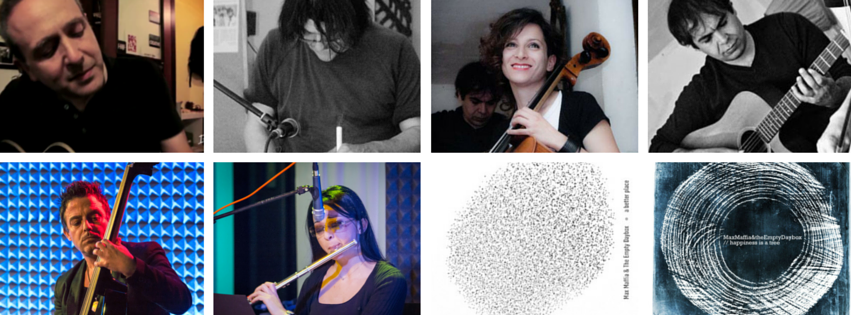
The result is today’s “ Max Maffia & The Empty Daybox” comprising Max Maffia and Valerio Valiante on acoustic guitars, Daniela Lunelli on the cello, and Alex Taborri on the percussion and charango.
In 2016, the band has been enhanced by two new components: Annamaria Conte on flute and Gino Ariano on bass guitar.
The group offers a suggestive repertoire of ambient acoustic instrumental tracks with a distinctly Mediterranean flavour in which a sagacious mix of spontaneous improvisation and careful composition creates a unique and intimate listening experience.
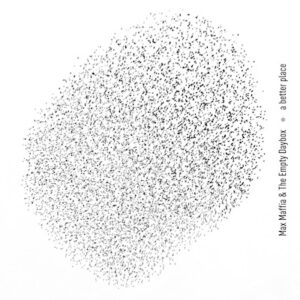
A BETTER PLACE
4 steps and checkmate. 4 tracks to recover a meaning . 4 tracks to shorten distances. 4 tracks to fly in a better place.
The Ep “A Better Place” was released via Daybox Records on July 3rd 2015.
Recorded in Salerno and Berlin at Luma Studio, Storm Studio and FarF StudiO Berlin.
Produced by Lorenzo Maffia // Artwork by Roberto Policastro doppiavù studio] // Photos by Alessandra Cammarano from “Free as a bird”.
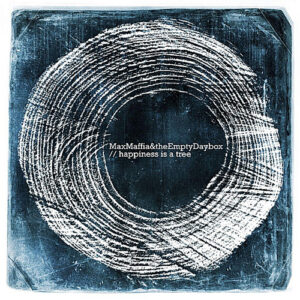
HAPPINESS IS A TREE
9 ambient acoustic instrumental tracks with a distinctly Mediterranean flavour in which a sagacious mix of spontaneous improvisation and careful composition creates a unique and intimate listening experience.
[Tony Lawson – Indieguild]
The group’s first album was released via Daybox Records on February 9th 2012.
Recorded in Salerno at Storm Studio // Produced by Lorenzo Maffia // Artwork by Roberto Policastro [doppiavù studio]
The releases are available on CDbaby as well as on the major digital download provider services.
Visit the official website // Buy on CDbaby
What they say about us [all reviews are in italian!]:
Giuliano Manzo – Frastuoni // Fabrizio Fontanelli on Slow Cult // Giulio Tedeschi – Toast Records // Alessandra De Vita – La Città // Marcello Napoli – Il Mattino
4 mosse: scacco matto e la ricerca del “posto migliore
“A better place”, il posto migliore non è l’isola che non c’è, ma l’onda, se non perfetta, quella che avvolge spumeggia trasporta.
“A better place”, non è Utopia o Atlantide e nemmeno l’isola del tesoro.
“A better place” è guardarsi allo specchio e trovare in sé la junglind, quella forza sorgiva di armonie, di sussulti, emozioni, echi di memorie fuori dal coro, ricordando che non tutto è e deve esser mercato-mercanzia, moda, clone. E tutto può tornare …
“A better place” è la storia personale, le immagini di nebbie diradate dal sole e poi ancora nebbia e poi rugiada e poi l’affievolirsi di ansie e tormenti e la scoperta di una lingua, una sonorità, armonia da riscoprire e “condividere”.
“A better place” è un portico con quattro soglie: la prima traccia, dall’incipit moresco, è come il lieve solco di calligrafo su pergamena;
“The cat on the tablet” è una chitarra dal passo felpato continuamente sottolineato dal violoncello e dalle percussioni, soft … come matite morbide a rimarcare passaggi voluttuosi; una danza come stare su un’amaca tra il vento.
“Flowing”, la terza traccia è il lato di bolina del viaggio a vele spiegate, aperte da brezza, soli con noi stessi, sotto lo sguardo di curiosi gabbiani, frecce d’argento al rallentie del tempo sospeso …
“Have a good night” è il saluto a domani, a un domani senza spirali e looping, soprattutto senza inganni. L’eco delle ninne nanne è evidente, poi scompare, poi riappare come un miraggio poi si avvoltola.
Orfeo è nelle corde delle chitarre di Max Maffia e Valerio Valiante; Euridice è il violoncello di Daniela Lunelli; non c’è Averno e buio, diradato dai passi di Alessandro Taborri che muove, percuote l’aria, le stalattiti e stalagmiti intorno ad un’isola .. non Utopia, ma unione, musica, onde, emozioni.
Laevia gravia, scacco matto alle ansie in quattro mosse, quattro cavalieri de navigatori non solitari.
E noi con loro…
Marcello Napoli about “A better place”
